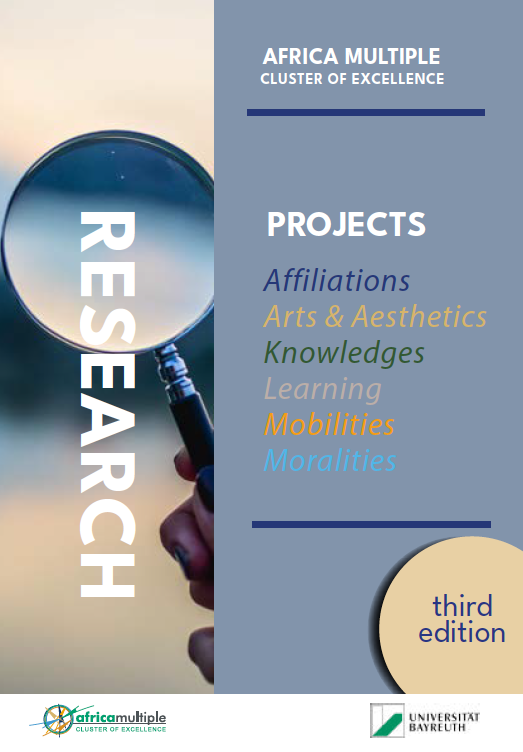Approaches to African Sonic Pedagogies
-
Research Section: LEARNING (in synergy with ARTS AND AESTHETICS and KNOWLEDGES)
-
Project duration: 01.07.2021 - 30.06.2023
Summary
Addressing transformation, integration and the decolonisation of the curriculum on several levels, the universities involved in this study group have developed courses to re-value and promote African ways of making and interacting with music. Approaching decoloniality as contextual, relational, practice based, and lived, each institution has actively engaged in establishing practical indigenous African music making courses that students have access to whilst completing an undergraduate degree (Walsh 2018, 19). The courses are based on an interactive ‘call and response’ methodology which highlights the individual, communal and collective learning of a diverse group of change drivers in what can be a very polarised African society (Kulundu 2018). Each contribution is designed to generate future teachers, culture-bearers and music fans/connoisseurs who will possess a deeper understanding of, and feeling for, indigenous African musics and who, as a result, will be able to engage with African musics through teaching, learning and appreciation at all levels.
This type of intervention, referred to as transmission and acquisition in Ethnomusicology, is being practised at universities globally (Kruger 2009; Schippers 2010; Campbell & Higgins 2015), where ethnomusicologists and community musicians teach students about music from around the world. However, in our collective situation, African musical material is being taught to predominantly African students who, for many different reasons, have previously been denied the opportunity to fully engage with music from their own cultures. Students are not learning about music from another country or continent, but rather from their own continent and even their own cultures. Thus, this research is of a critical nature, with the intention being to create knowledge for policy and curriculum change at tertiary level and to highlight the importance of indigenous knowledge as a pathway for identity formation and knowledge production and dissemination. It will encourage a form of transcultural education which will develop avenues for the students to interact with unfamiliar music traditions which will consequently lead to self-examination and an autonomous reconceptualisation of their own relationships, assumptions and preferences (Elliot, 2005, 9–11). This research promotes the musical arts and cultural heritage on the African continent as deeply intertwined and connected, with transgenerational knowledge sharing at its core. It entails inquiry into the teleology of African music pedagogy, looking to establish an understanding of the goals of the institutions whilst locating each epistemological approach. In addition, as traditional modes of learning African musical arts rarely encompass evaluation, assessment as emphasised in current tertiary education models, this study will evaluate the efficacy of each university’s strategy. The pedagogy envisaged should implicate assessment strategies as learning, of learning and for learning.
Key Questions
Specific Pedagogical Research Questions:
- How can we develop new perspectives on and (de)/constructions of African musical arts teaching and learning?
- How can African musical arts performance and cultural heritage gain educative significance?
- How can sonic-based indigenous learning inform pedagogical responses to transformation in higher education?
- In what ways can ICT advance an agenda for a decolonised African music pedagogy?
Overarching Theoretical Research Questions:
- What is the nature of the knowledge produced in African music pedagogy? What form does it take? Is it hierarchically structured? Is it rhizomatic? Or entangled?
- Does African music pedagogy subsist on dominance of an empowered instructor? Is it built around submission, cooperation, conflict, collaboration?
- How do teachers and learners relate in transgressive education?
- How does African music pedagogy relate to and with the public?
Methods and Concepts
Members of the epistemic team have been taking up one month residencies at the International Library of African music (ILAM), an ethnomusicology centre based at Rhodes University in South Africa. Here they have been writing about their transgressive pedagogical experiences whilst interacting with other scholars from the continent through workshops and presentations. Building on work already in progress at ILAM, the goal is that we gather an epistemic community of music culture-bearers; students; lecturers; academics and other interested parties who contribute to the rigorous analysis of current African musical arts intervention.
Owiny et. al. (2014, 238) write that the main task facing Africa is the creation of sustainable strategies to preserve and disseminate indigenous knowledge. This study proposes to use an artsbased research (ABR) methodology, which is a form of qualitative research. It is known to ‘umbrella’ several arts-related methodologies including practice-led research, ethnography and A/r/tography (Vist, 2015, 260). This type of research uses artistic forms and expressions to explore, understand, represent, and even challenge human experiences. Focusing specifically on A/r/tography as a methodological framework this research hopes to highlight the research inquiry, the pedagogical strategies and creative engagement of each participant as it relates to their musical arts curriculum intervention (Irwin 2013, 201). Thus, these curriculum ‘inventions or creations’ are seen as products of the social, cultural, economic, and political processes that each contributor (seen here as the combined Artist/Research/Teacher) has navigated in order to produce their course (Irwin 2013, 200). In addition, each contributor will be guided through the process of subjecting their empirical data and postulations to axiological investigations.
Contribution or Relation to the Cluster’s Aims and Goals
Using the lens of music through an A/r/tographic approach, this project speaks to issues of power structures and imbalance and colonial influences on diversity politics in African contexts. A task facing artists, researchers and teachers of African performance arts is the creation of sustainable strategies to preserve, promote and disseminate existing approaches to indigenous ways of teaching and learning at tertiary level. The reconceptualisation of Indigenous Knowledge offers the decolonial approach an alternative to understanding the ways in which we frame and understand pedagogical approaches in music practices in Africa. Owusu-Ansah and Mji (2013) argue for a shift away from treating African ways of knowing as being solely grounded in interpersonal community relations that are lacking in cognitive academic intelligence. A goal of this project is to challenge established eurocentric norms of performance teaching and learning through critical reflection on empirical data. The vision for inclusive perspectives of African musical arts pedagogies, with reference to innovation and sustainability, builds on transgressive learning which empowers instructors with tools to reveal, mitigate, and challenge domineering structures in higher education (Drane et al. 2019). Fourie (2020, 3) argues that a key aspect of decolonial analysis is the shifting of what he terms the critical nexus to the former colonies. Such a move encourages those who practise in these former colonies, or on the periphery, to reconceptualise the ways which eurocentric epistemologies are put to work in an evolving global geopolitics of knowledge production. The active subordinating of colonial hierarchies of knowledge, knowledge production and dissemination is a key aspect of this research.
Bouventura de Sousa Santos (2012, 43) argues for the development of epistemologies wherein the new theories are not governed by the European theoretical and cultural presuppositions. Therefore, the Indigenous Knowledge we seek to develop should stand on its own merits and intellectual integrity rather than depend on European affirmation. This includes changes to the ways in which we see and understand indigenous ways of knowing and teaching and working towards an Afrocentric methodology for qualitative approaches (Owusu-Ansah and Mji, 2013).
Project Team
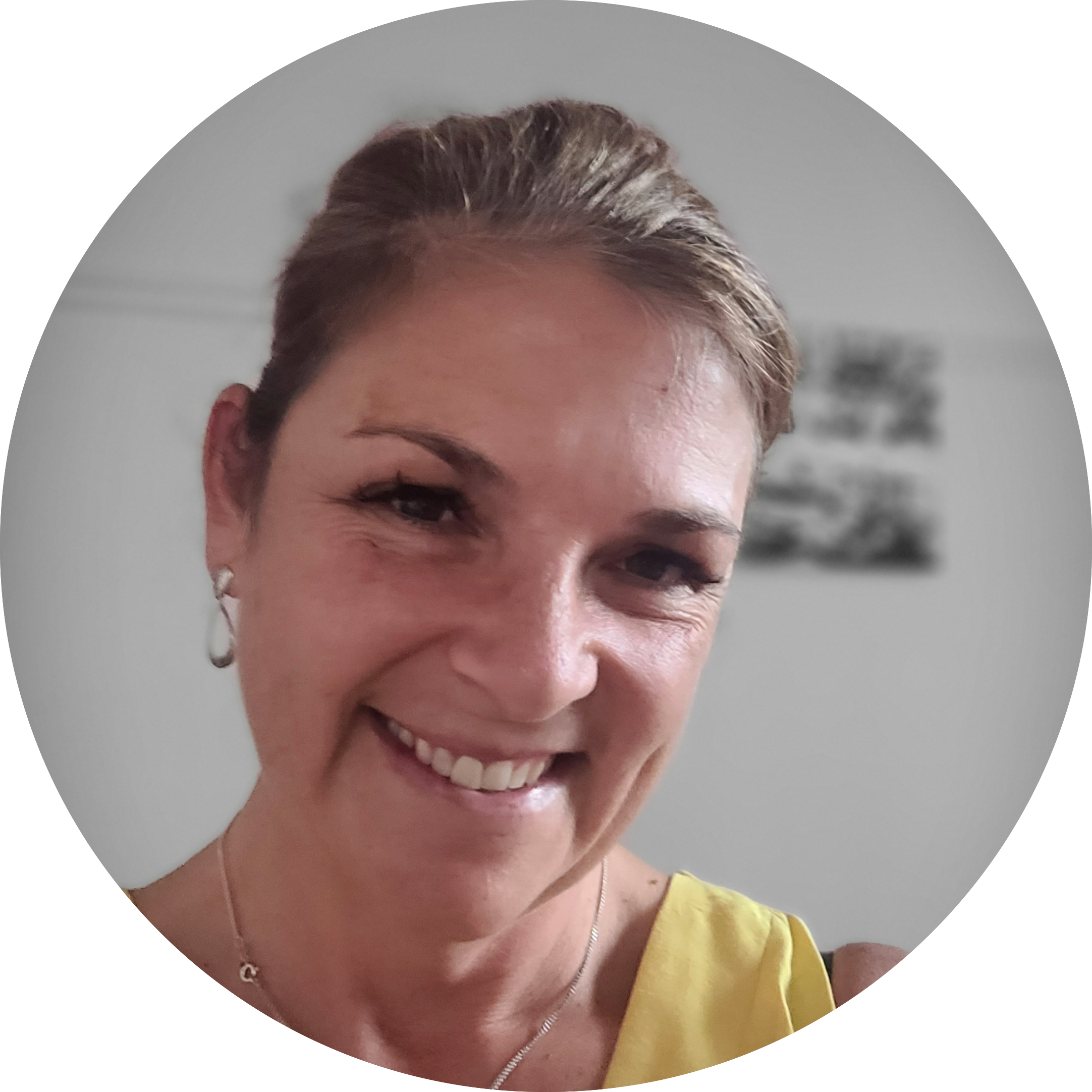
Dr. Boudina McConnachie
Ethnomusicology
Principal Investigator
Rhodes University
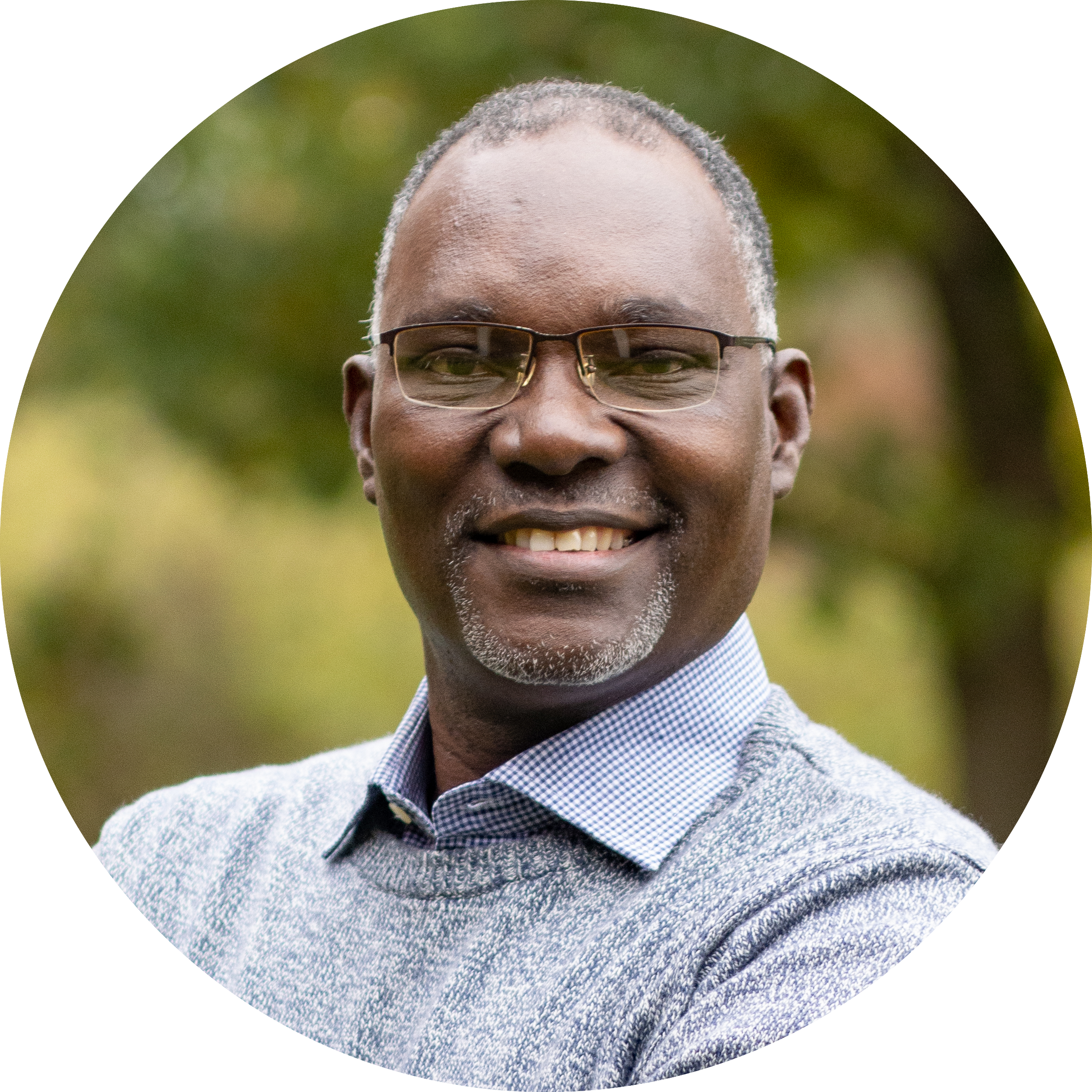
Prof. Dr. Anthony Okeregbe
Philosophy
University of Lagos
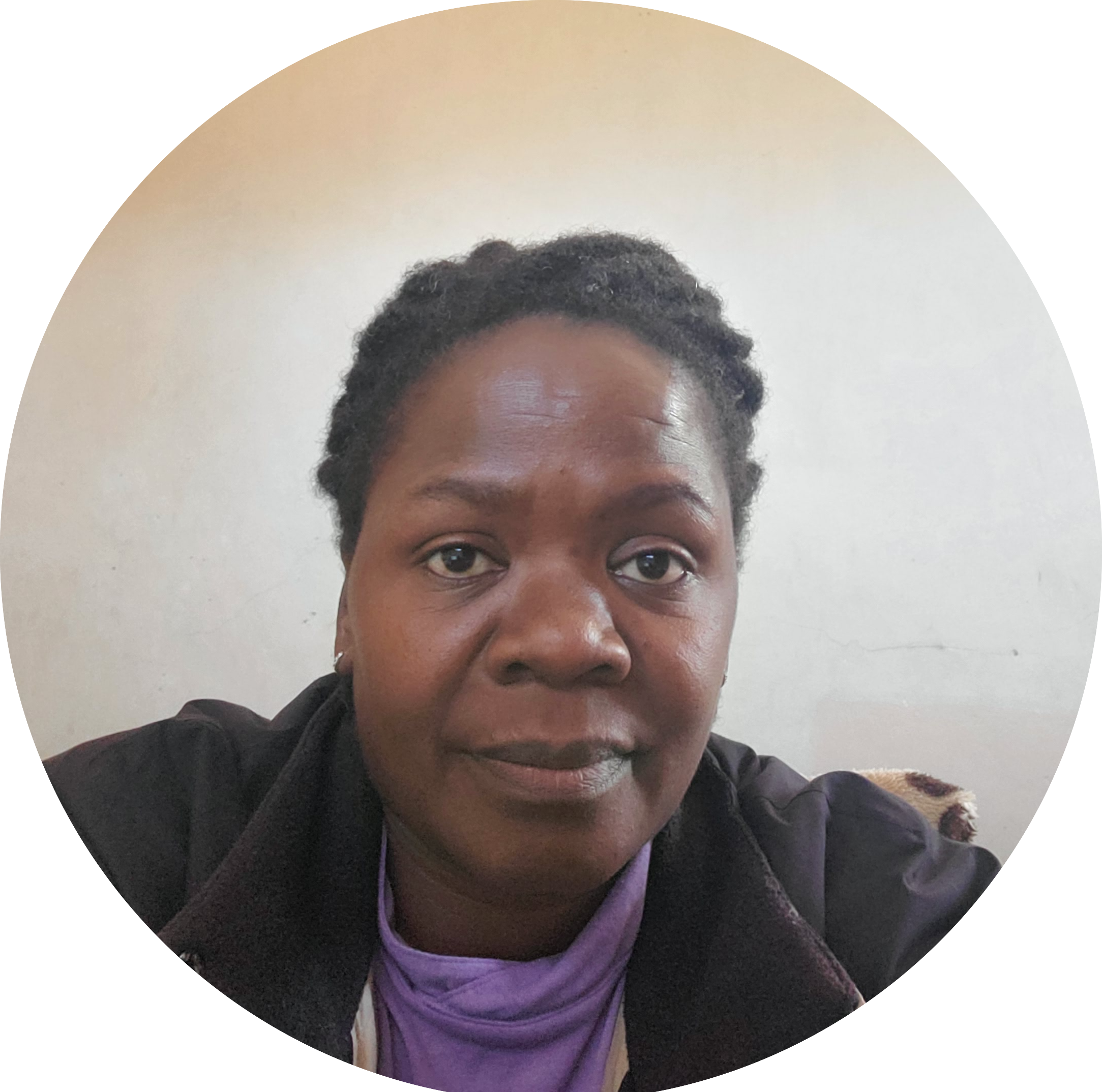
Dr. Jane C. Sinyei Mwonga
Music Education
Moi University Eldoret
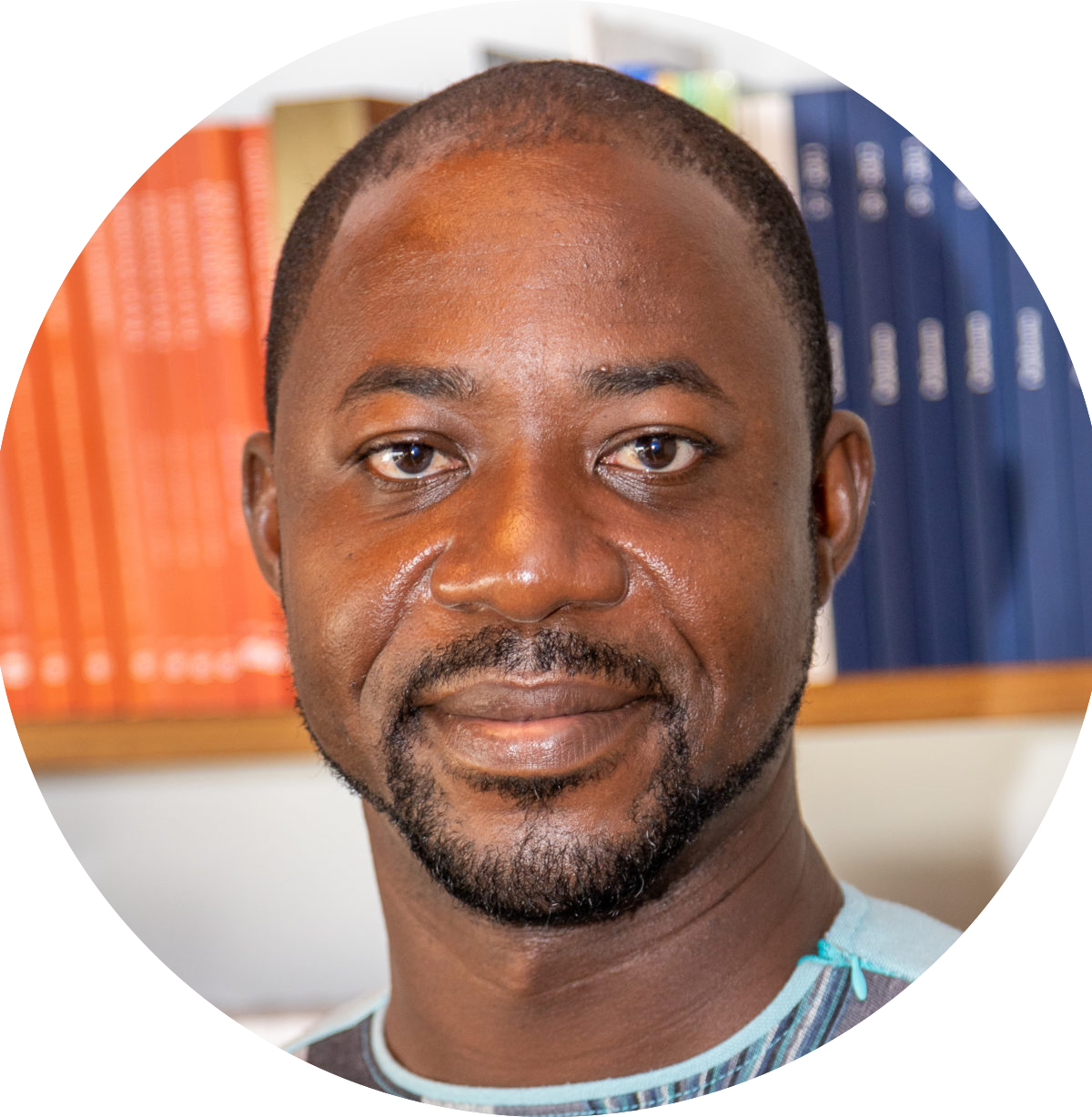
Dr. Eric Debrah Otchere
Music Education
University of Cape Coast, Ghana
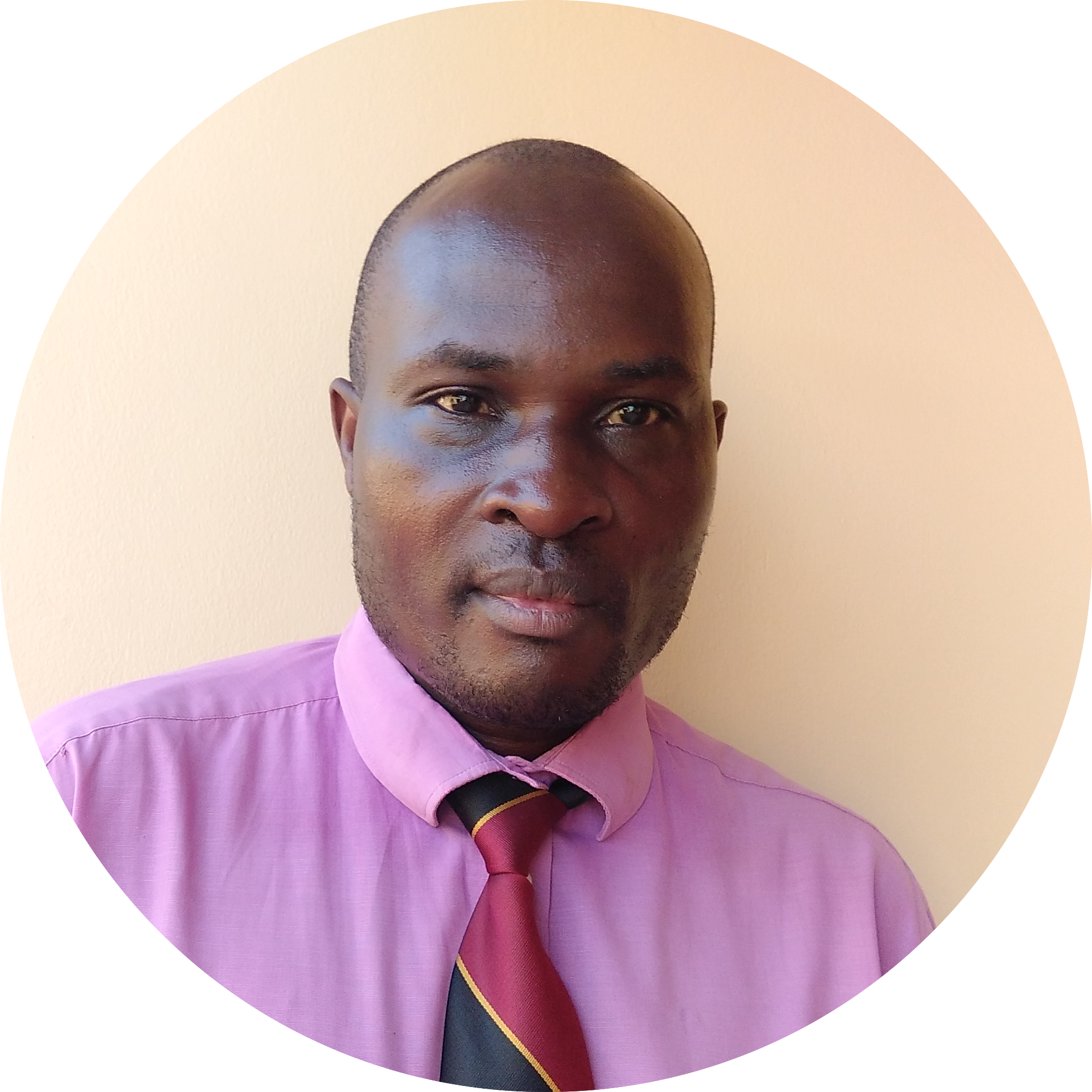
Dr. Dominic Makwa
Musicology
Makerere University Ghana

Dr. John-Doe Dordzro
Music Education
University of Cape Coast Ghana
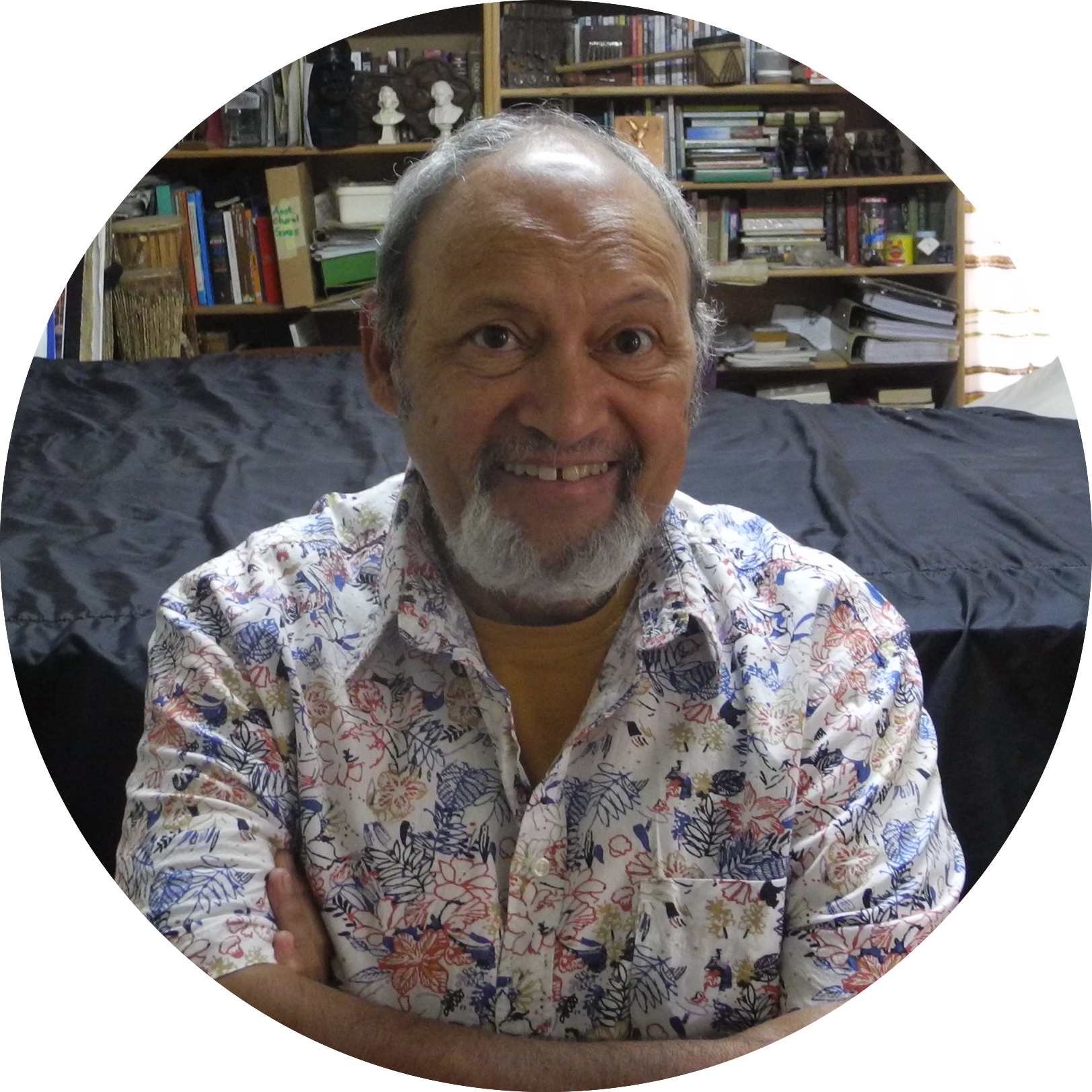
Alvin Peterson
Musicology
University of the North West, South Africa
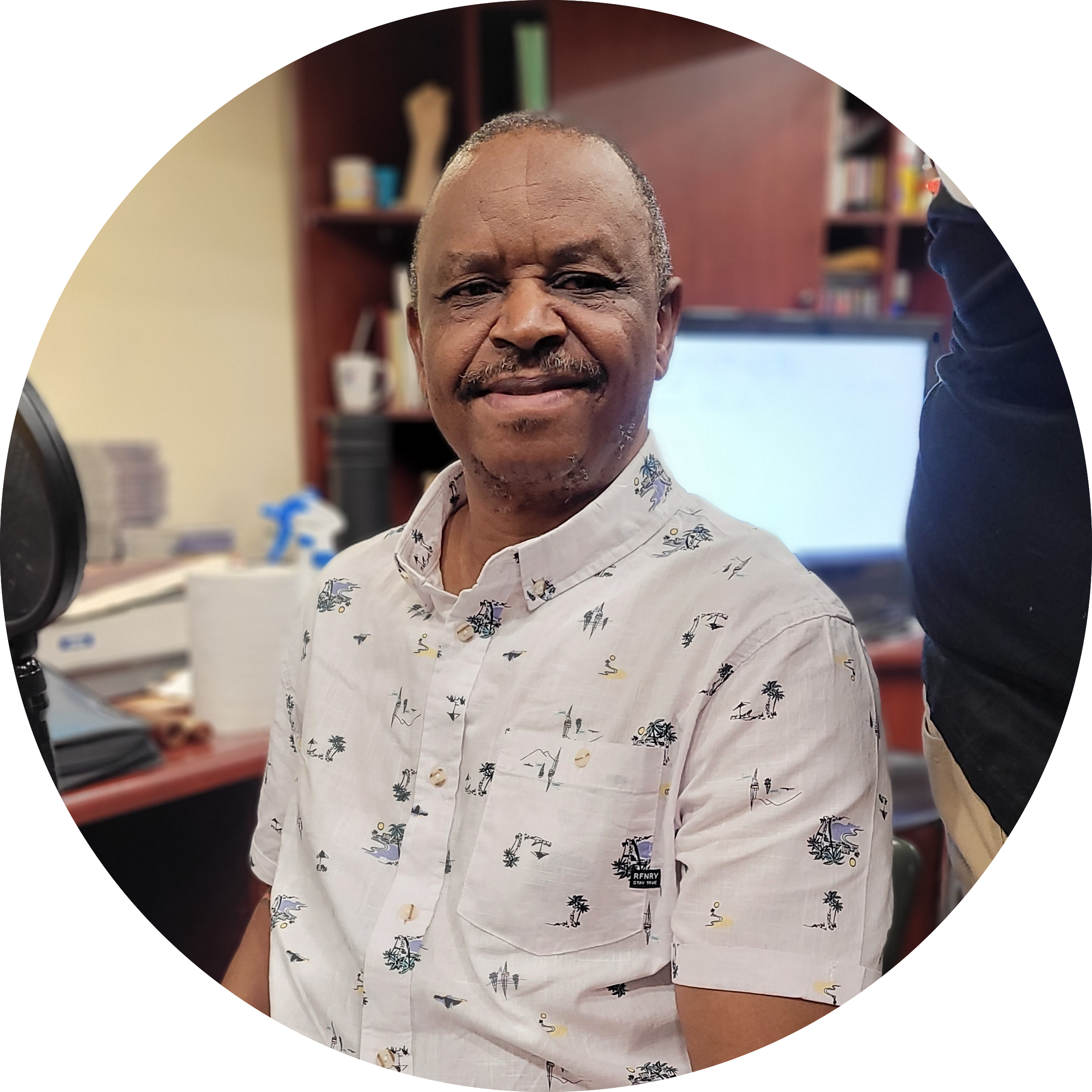
Perminus Matiure
Ethnomusicology
University of Namibia
Further Links / Key References
- de Sousa Santos, B. 2012. Public sphere and epistemologies of the South. Africa Development, 37(1), 43–67.
- Campbell, P. and Higgins, L. 2015. Intersections between ethnomusicology, music education, and community music. Pettan, Svanibor and Titon, Jeff Todd, (eds.) The Oxford and book of Applied Ethnomusicology, (638–688). New York, Oxford University Press.
- Drane, L.E., J.Y. Lynton, Y.E. Cruz-Rios, E. Watts Malouchos, and K.D. Kearns. 2019. Transgressive Learning Communities: Transformative Spaces for Underprivileged, Underserved, and Historically Underrepresented Graduate Students at Their Institutions. Teaching & Learning Inquiry, 7(2), (106-20).
- Elliott, D. 2005. Introduction. In Elliott, D. (Ed.), Praxial Music Education: Reflections and Dialogues, (1–18). New York: Oxford University Press
- Fourie, W. 2020. Musicology and Decolonial Analysis in the Age of Brexit. Twentieth-Century Music, 17(2), 197–211.
- Irwin, R. L., LeBlanc, N., Ryu, J. Y., & Belliveau, G. 2018. A/r/tography as living inquiry. Handbook of arts-based research, 37–53.
- Krüger, S. 2009. The Ethnomusicologist as Pedagogue: Disciplining Ethnomusicology in the United Kingdom. The World of Music, 51(139–170).
- Kulundu, I. 2018. Think piece: intersectional resonance and the multiplicity of being in a polarised world. Southern African Journal of Environmental Education, 34.
- *McConnachie, B. 2016. Indigenous and Traditional Musics in the School Classroom: A Re-Evaluation of the South African Indigenous African Music (IAM) Curriculum. Doctoral dissertation, PhD Dissertation: Rhodes University, Grahamstown. Available: http://hdl. handle. net/10962/6806.
- *McConnachie, B. TBP. Social Cohesion and Indigenous Arts Education in South Africa in A Nation Divided? Assessing and Analysing Social Cohesion in South Africa, edited by Justine Burns and Arnim Langer, commissioned by U.C.T. and UK Leuven, Cambridge University Press.
- McGarry, D. 2015. The listening train: A collaborative, connective aesthetics approach to transgressive social learning. Southern African Journal of Environmental Education, 31(1), (8–21).
- Owiny, S.A., Mehta, K. and Maretzki, A.N., 2014. The use of social media technologies to create, preserve, and disseminate indigenous knowledge and skills to communities in East Africa. International Journal of Communication, 8, p.14.
- Owusu-Ansah, F. E., & Mji, G. 2013. African indigenous knowledge and research. African Journal of Disability, 2(1), 1–5.
- *Otchere, E. 2017. Toward a Culturally Responsive Music Curriculum: Harnessing the Power of Ghanaian Popular Music in Ghana‘s Public Education Sector. Ghana Studies 20 (93–110). Project MUSE.
- *Otchere, E.D. 2019. Sharing concerns, in Achieng’Akuno (ed). Music education in Africa: Concept, process, and practice (59). Routledge.
- Vist, T., 2015. Arts-based research in music education–general concepts and potential cases. Nordic Research in Music Education. Yearbook Vol. 16 2015, 259–292
- Walsh, C.E. and Mignolo, W.D., 2018. 1 The Decolonial For. On decoloniality (15–32). Duke University Press.


